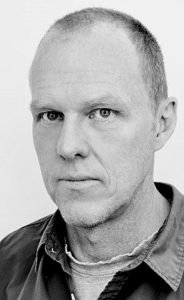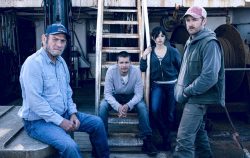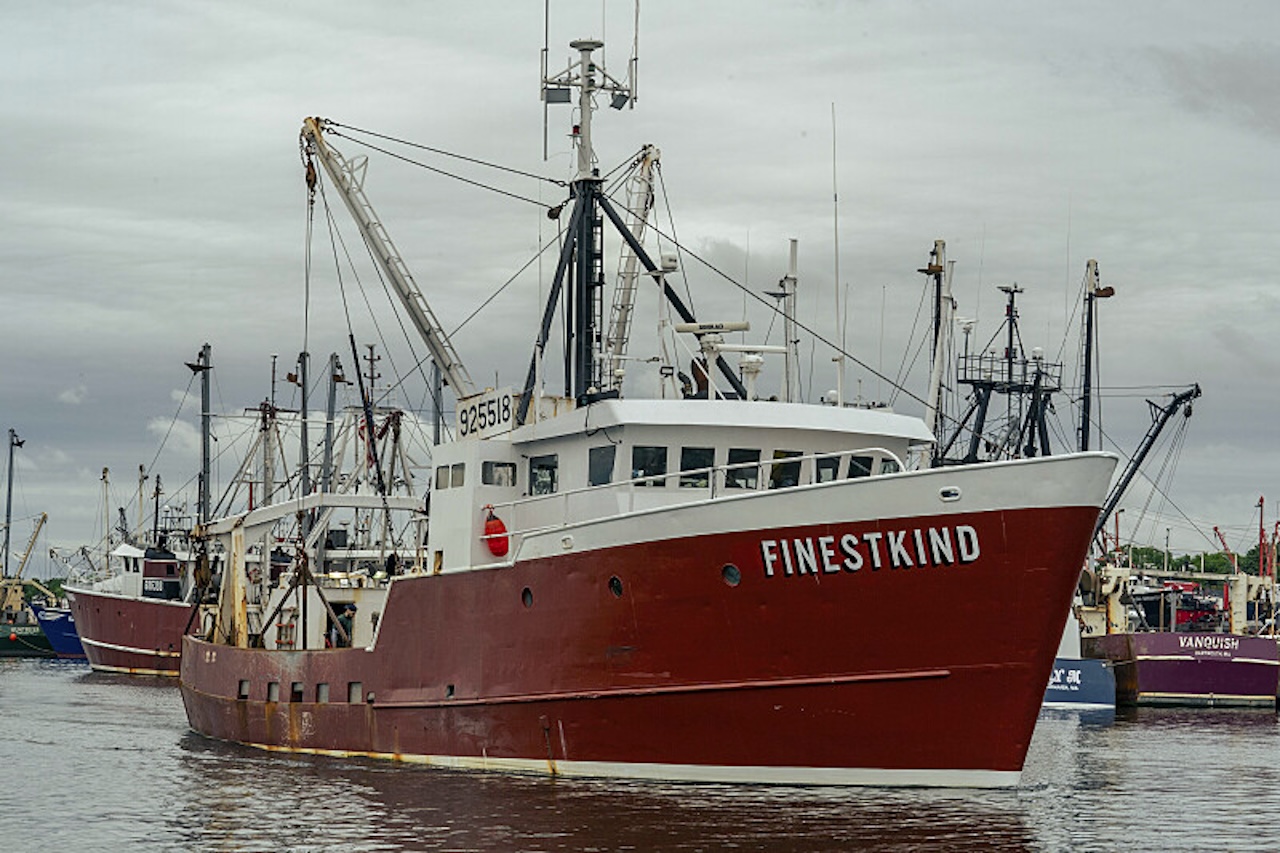Finestkind is a ubiquitous New England saying meaning “the very best” and is also the name of Brian Helgeland’s (L.A. Confidential, Mystic River) new film which stars Ben Foster, Tommy Lee Jones, and Jenna Ortega.
Set in New Bedford, Massachusetts, Finestkind (also the name of the ship in the film), is one of the major American fishing ports just outside Rhode Island, where Helgeland was born. His father, grandfather, and uncle were commercial fisherman. Brian fished for two years before attending film school.
Brian’s fishing roots depicted a world “where the fishermen that were completely in charge, out to see their lives and occupations, and knew what they were doing.” The writer/ director wanted to illustrate the ruggedness of the world at sea.
The world of Finestkind demonstrates the relative vastness of the ocean in comparison to the smallness of a fishing boat. “That’s the inherent adventure, bravery or foolishness of the characters that would allow them to venture out in this ocean, on this little speck of a boat that they’re on, and take from it what they need to live their lives,” ponders Helgeland. “So, I think it breeds this very special kind of independent spirit.”
There’s a kind of wild, foolish bravery that I think all fishermen have
Finestkind was conceived decades prior to the film’s release, before Brian even went to film school. “I’ve always had a version of Finestkind since 1987,” confesses Helgeland. “Early on, it was more of a straight exploration of one character, Charlie (Toby Wallace). His brother Tom (Ben Foster) is not there. Charlie doesn’t know what he’s dealing with, he gets a job and it changes his life. He ends up with these guys as a complete outsider, rather than a half outsider because his brother’s a captain in the film version.”

Brian Helgeland. Photo by Maarten de Boer
After Brian completed film school, he wanted to add more complexity to the characters. He didn’t want to focus so much on the harshness of fishing life, but rather delve deeper into the characters because they were satisfied with the life they’d chosen. The character of Tom, Charlie’s half-brother, was created about five years after the first draft.
Father/ Son/ Brother Story
Helgeland gives the brothers two fathers so he could explore different versions of the father/ son dynamics. Eldridge (Tommy Lee Jones) features most prominently because he’s the father of both Charlie and Tom. Eldridge is reflective of his life and using his parenting skills to manoeuver his sons out of their dire predicament.
He’s an absent father, having spent most of his career on a fishing boat. The rest of the time, when he’s at home, he’s arguing with their mother leading to an unhappy home life.
“Eldridge is the spine of the story, because it’s his boat that they’re on. The boat that they’re trying to salvage and pay the fine on. He’s instrumental in getting the boat back. So, I think Eldridge, in a sense, is that boat as well.”
Charlie and Tom honor their father and are bound by a sense of duty to him. Tom remarks, “I can’t let my dad die with no one. His boat’s tied up.”
Charlie and Tom begin the story estranged despite living in the same town. “Tom was raised by his mom and his stepdad and his little half-brother annoying him all the time. He has this image of his real dad and trying to gain his acceptance. It’s a very regretful thing for both of them that they missed on each other.”
Charlie and Tom have a deeper understanding of each by the end of the film, despite their personality differences. They aren’t fully-healed, but they’re also no longer estranged. Tom will always be Charlie’s big brother, even when they live separate lives. Blood is thicker than seawater. That bond can never be broken.
Charlie is at a crossroad in his life and looks to Tom for big brother guidance. Tom mildly rejects Charlie when he joins them on the fishing boat. “Tom is a very lonely character and he’s isolated from all sides of his family. But he also likes the idea of having a little brother around,” states Brian.
Eldridge counsels Tom, “I spent my whole life trying never to need anyone. Don’t you do that.” So Tom eventually becomes open to the idea of having Charlie in his life. When Tom visits Eldridge in the hospital, he realizes Charlie’s with him. He says, “Brothers ought to be brothers.” Tom and Charlie realize that there was something missing in both of them that they get from each other.
“Eldridge speaks to the fleeting nature of fortunes and how easily they can shift. You need a balanced view on life. There is good and there is evil and you must navigate them both.”
Mabel (Jenna Ortega) is torn between loyalties – her crime family who wants their debt paid and the brothers she’s befriended that owe the massive debt. She’s in over her head and wants to escape her world. She may choose one or the other – or choose herself. It’s her moment of reckoning.
Brian Helgeland adds that Mabel is the character most like him in Finestkind. “I grew up in that town and I had no sense of how to get out of it. I knew that the world was bigger outside that town. I love my family and I love my friends, but I have to figure out me and I try to give all that to Mabel.”
Genre
Finestkind borrows from a range of genres including crime, thriller, action, and family drama. Brian Helgleland is reticent to pigeon hole his film into a singly genre space because it doesn’t neatly fit into any. He claims this is a hallmark of much of his writing. Sometimes, the genre in his stories change midway through.
Helgeland doesn’t consider Finestkind to be a typical action or crime movie, “but it’s propulsive in a way. We’re in a world where things happen and move and crash.”
“It was about getting to know them first, getting to see them in their world, how everything works, how they live, and how they breathe. And then things go bad. The main genre is crime. Crime movies always have a crucible where they dump the characters in so they are forced to resolve things. All of a sudden, someone’s put in a gun in your face and you’re going to either live or you’re going to die.”

Eldridge (Tommy Lee Jones) Charlie (Toby Wallace), Mabel (Jenna Ortega) and Tom (Ben Foster) Photo by Miller Mobley/ Paramount+
Finestkind also takes its time with its pacing. “Not much action happens in the first hour. The two characters basically fall in love with each other which allows the genre of the second half of the movie to unfold.” This was a similar note Helgleland received from Tony Scott in 2004’s Man On Fire. Helgeland points out the similar scheme in A Knight’s Tale.
Brian’s film moseys along unhurriedly despite crime stories inherently demanding action sequences. “I think there are some scenes in there to keep the action going. Mabel’s late for the boat, the big car chase in the movie of Mabel trying to get to the boat before it leaves the harbor. There’s a hurricane, a dive, a boat explosion, and gun play when the fake cops arrive.”
Final Words
Brian Helgeland believes that a unifying theme in most of his films is identity. “Characters are either being true to themselves, trying to figure out who they are, or being forced to confront who they are.”
“I think that growing up in that time and having no sense of anywhere, I ultimately ended up experiencing two very different worlds with very different expectations of where you could be and where you ended up being.“
